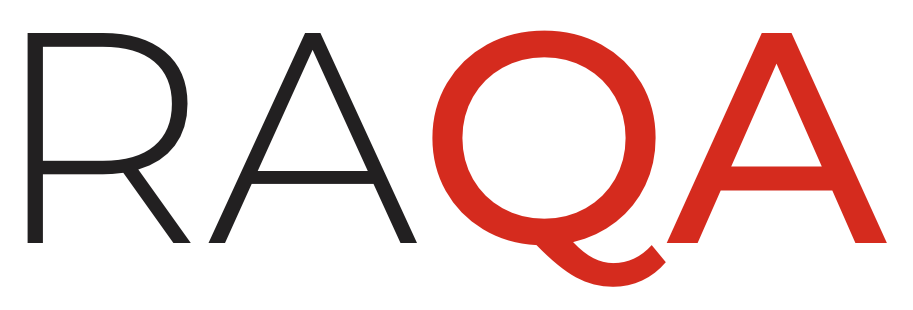How to Host FDA Investigators
How to host FDA investigators, written by a former FDA investigator, is streamlined from years of experience on the FDA side while interacting with industry professionals. The purpose is to share practical insights and foundational lessons that can help you prepare for and manage inspections more effectively. It is important to recognize that every FDA investigator is different, with their own style, priorities, and expectations. Therefore, while the guidance provided here can serve as a useful framework, you should always exercise your own discretion when applying it. The intention is not to prescribe rigid rules but to share basic principles that have proven valuable in real inspection settings. Ultimately, it is up to you and your organization to determine how best to strategize, prepare, and host FDA investigators in a way that demonstrates professionalism, transparency, and commitment to compliance.

PRE-INSPECTION PREPARATION (Before the Investigator Arrives)
Designate a Host and Escort:
- Appoint a primary host (typically QA/RA Director or Site Quality Head).
- Assign a trained escort to accompany the investigator at all times inside the facility.
- Ensure alternate escorts are identified in case of absences.
Prepare the War Room:
- Set up a ‘war room’ (backroom) for reviewing documents before providing them to the investigator (see more details below).
- Have quality assurance, regulatory affairs, and document control staff ready to support.
Document Control:
- Ensure all records are current, signed, and properly filed.
- Electronic systems must comply with 21 CFR Part 11 for electronic records.
WHEN THE INVESTIGATOR ARRIVES (Day 1)
Welcome and Log-In:
- Greet the investigator(s) professionally.
- Confirm and log identification credentials (Form FDA 482 – “Notice of Inspection”).
- Record the names and contact info in a visitor log.
Provide Facility Tour:
- Conduct a brief and pre-approved tour of critical manufacturing and QC areas.
- Escort must document areas visited, questions asked, and observations made.
Opening Meeting:
- Introduce company leadership, host, and backroom support team.
- Review the scope of the inspection.
- Ask if they have specific areas of interest or prior complaints.
- Clarify whether the inspection includes suppliers or contractors.

DURING THE INSPECTION
Respond to Requests Promptly:
- All document requests should go to the war room for review.
- All documents handed to the investigator must be clean, controlled copies.
- Track all requests on a Document Request Log.
Maintain a Professional Tone:
- Never argue or guess. If unsure, say, “We will check and get back to you.”
- All conversations must be recorded by the scribe (inspection log).
Keep Communication Clear:
- Avoid over-sharing or offering unsolicited information.
- Escort and scribe must record all questions and responses verbatim.
Daily Close-Out:
At the end of each day, ask the investigator:
- What topics were covered today?
- Any concerns or observations?
- What’s planned for tomorrow?
- Keep internal teams updated through debriefs.
END OF INSPECTION
Exit Meeting:
- FDA will issue Form FDA 483 if observations are made.
- Do not argue. Ask clarifying questions.
- Ask if the investigator will provide a verbal summary of observations.
Documentation: Obtain and file:
- Form FDA 482 (start of inspection)
- Form FDA 483 (if issued)
- Inspectional Observations Summary (internal)
- Any additional handouts or materials shared
POST-INSPECTION ACTIONS
483 Response (if issued): Respond within 15 business days with:
- Corrective action plans (CAPAs)
- Root cause analysis
- Target completion dates
Note: Failure to respond timely may result in a Warning Letter or further regulatory action.
Internal CAPA Review:
- Initiate CAPAs for any verbal or written observations.
- Update training records, SOPs, and risk management files as needed.
FDA Inspection “War Room” (Backroom) Setup
During an FDA inspection, the war room serves as the central coordination hub for the company. It is typically a separate room away from the main inspection area where the inspection support team gathers documents, prepares responses, and manages communications to ensure a smooth and controlled process.
Core Personnel
- Backroom Lead (Inspection Coordinator): Usually the Quality or Regulatory lead. Responsible for overseeing war room activities, prioritizing requests, and ensuring consistency in responses
- Document Control Specialist: Locates, copies, and verifies requested records before sending them to the front room. Ensures only approved documents are released.
- Note Taker / Scribe: Records every discussion in the war room, including requests, document flow, and strategy decisions.
- Subject Matter Experts (SMEs): Stand by in the backroom to prepare answers and documents. They are coached before being called into the front room.
Support Roles
- Runner: Transfers documents from the war room to the inspection room. Prevents uncontrolled communication with the investigator.
- Communication Liaison: Keeps leadership (e.g., QA Director, CEO) updated on inspection progress. Coordinates messaging to avoid surprises.
- Technical Support (optional): Manages electronic systems access (LIMS, ERP, QMS) and provides controlled printouts if requested.
Key Functions of the War Room
- Document Preparation: Gather, review, and verify documents before release.
- Strategy Alignment: Ensure all answers are consistent and accurate.
- SME Coaching: Prepare SMEs with context before they enter the inspection room.
- Real-Time Tracking: Maintain a log of all investigator requests, documents provided, and questions asked.
- Issue Escalation: Quickly notify leadership of red flags or potential 483 observations.
Best Practices
- Keep the war room calm and organized—stress in the backroom can lead to mistakes.
- Use a request tracking board to monitor outstanding investigator questions.
- Assign one person to review all documents for completeness and confidentiality before release.
- Never allow direct communication between war room staff and the investigator, except through the designated company representative.
TIPS: How to Host FDA Investigators
- If the investigator is still not satisfied with the records you provide, ask for clarification and specific examples of what content they would like to see. You may already have the documents, but they could be filed under a different title or category. Even if they are not exactly what the investigator requested, it is important to present the information you do have.
- If you clearly understand the record the investigator is requesting but do not have it readily available, and it can be produced overnight, it is far better to dedicate the time to prepare the documents they are asking for. However, never backdate any records or documents. Present them the next day and ask the investigator whether this is what they were looking for or if you are on the right track.
- Having a full-time scribe is essential. The scribe should not engage in the conversation or inspection, but must accurately document every discussion in the room verbatim.
- The FDA investigator serves as the eyes and ears of the agency. Do not discuss unrelated matters in their presence. Additionally, carefully observe what the investigator focuses on—specifically, what they are watching or examining—during the initial walkthrough.
- Having the CEO or the most responsible individual of the site present during the opening and closing meetings of an FDA inspection demonstrates your company’s commitment to compliance, quality, and regulatory accountability. This visible leadership presence reinforces the seriousness with which your organization approaches FDA inspections and signals that compliance is a top priority.
FINAL NOTE
- Having an FDA expert or consultant on standby, even remotely, during an inspection can save significant time, energy, resources, and potential complications. Choose an expert with direct experience as a former FDA investigator in your specific industry. However, there is no need to mention to the investigator that you are consulting with an expert or attorney. Doing so may cause them to strengthen their case or escalate issues unnecessarily.
- Finally, practicing or rehearsing for an FDA inspection is much like preparing for a sporting competition or a musical performance. This disciplined preparation not only motivates your personnel but also trains them through experience, strengthens them psychologically, and equips them methodically. It is essential—there is no substitute for practice when facing the reality of an FDA inspection.